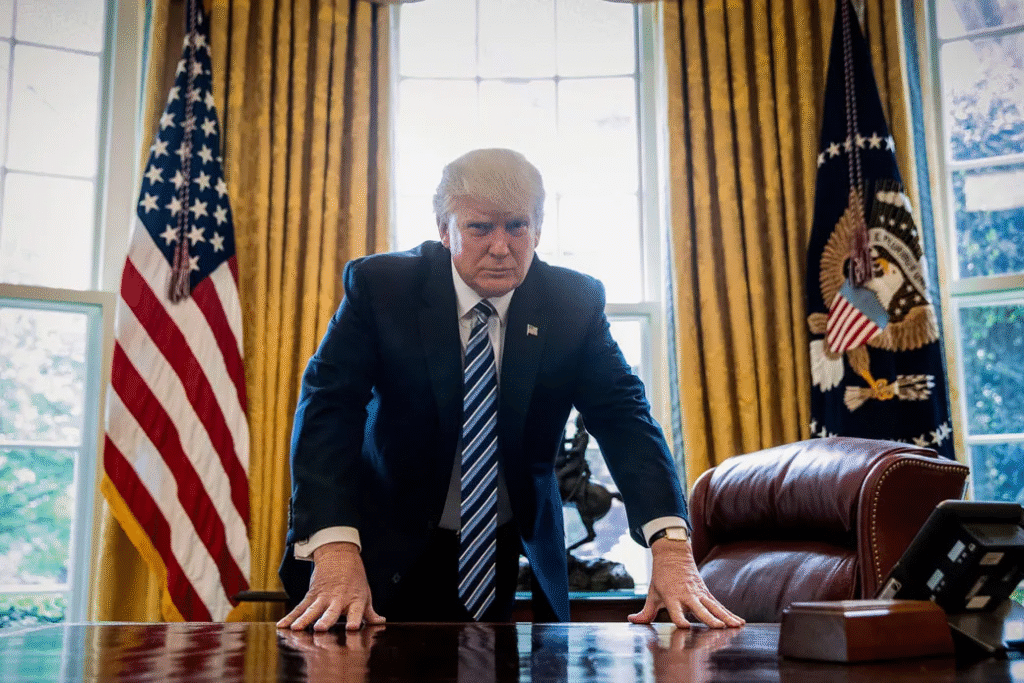How Trump Is Aligning with Israel to Curb Iran’s Nuclear Ambitions
Trump’s Evolving Stance on Iran-Israel Conflict
President Donald Trump has shifted from opposing Israeli strikes on Iran to offering reluctant support. Initially favoring diplomacy, he became convinced of Israel’s concerns about Iran’s nuclear program.
On June 8, 2025, briefing from Joint Chiefs Chairman Gen. Dan Caine swayed him. Trump now backs limited U.S. involvement but prefers a diplomatic resolution. He aims to prevent Iran from acquiring nuclear weapons, aligning with Israel’s security goals.
Support for Israel’s Military Actions
Trump has leaned toward supporting Israel’s offensive against Iran’s nuclear and military sites. He praised Israel’s strikes as “excellent” after initially urging restraint.

Israel’s attacks, launched June 13, 2025, targeted Iran’s centrifuge and missile facilities. Trump rejected a plan to assassinate Iran’s Supreme Leader Ayatollah Ali Khamenei, calling it “not a good idea.” He claims U.S. equipment gives Israel control of Iran’s skies.
Push for Diplomacy
Despite escalating rhetoric, Trump insists diplomacy is his preferred path. He gave Iran a 60-day ultimatum to negotiate a nuclear deal, which expired without agreement.
Talks in Oman, set for June 15, 2025, were canceled after Israel’s strikes. Trump suggested Iran should “make a deal” to avoid further destruction. He envisions a “real end” to the conflict, not just a ceasefire.
Threats and Warnings to Iran
Trump’s rhetoric has grown aggressive, demanding Iran’s “unconditional surrender” on June 17, 2025. He posted on Truth Social, claiming “complete and total control of the skies over Iran.”
He warned Khamenei, saying, “We know exactly where the so-called ‘Supreme Leader’ is hiding,” but ruled out killing him “for now.” Trump stressed Iran cannot have nuclear weapons, threatening severe U.S. military response if attacked.
U.S. Benefits and Strategic Goals
Trump’s strategy aims to curb Iran’s nuclear ambitions without entangling the U.S. in a full-scale war. Supporting Israel’s strikes weakens Iran’s military and nuclear capabilities, reducing a regional threat.
A nuclear-free Iran aligns with U.S. security interests and stabilizes the Middle East. Trump’s approach also seeks to maintain his “America First” stance, avoiding prolonged conflicts that could strain U.S. resources. Limited involvement, like supplying missiles for Israel’s Iron Dome, enhances U.S. influence without direct combat.
Domestic and International Pushback
Trump faces pressure from his base and Congress. Allies like Tucker Carlson and Rep. Marjorie Taylor Greene urge him to avoid war, citing his anti-interventionist promises.
Lawmakers, including Rep. Thomas Massie and Sen. Tim Kaine, introduced resolutions on June 17, 2025, to block U.S. military action against Iran without congressional approval. Internationally, Iran has urged Trump via Gulf States to push Israel for a ceasefire, offering nuclear negotiation flexibility in return.
Breakdown of Key Statements
- June 13, 2025: Trump claims he was “fully aware” of Israel’s strike plans, calling them a means to force Iran to negotiate.
- June 14, 2025: Warns Iran on Truth Social: “If we are attacked, the full strength of the U.S. Armed Forces will come down on you.”
- June 16, 2025: Tells ABC News the U.S. is not involved but “it’s possible we could get involved.”
- June 17, 2025: Demands Iran’s “unconditional surrender” and claims U.S.-Israeli control of Iran’s skies.
- June 17, 2025: Rejects ceasefire, saying, “I’m not looking for a ceasefire, we’re looking at better than a ceasefire.”
- June 18, 2025: Reiterates desire for a “real end” to the conflict, not just a temporary pause.
Trump’s mixed messaging shows a balancing act between supporting Israel, avoiding war, and pursuing a nuclear deal with Iran.


 Slovenia Becomes First EU Country to Ban Arms Trade with Israel
Slovenia Becomes First EU Country to Ban Arms Trade with Israel  Iranian President Pezeshkian to Visit Pakistan on First Official Trip
Iranian President Pezeshkian to Visit Pakistan on First Official Trip  US and Pakistan Seal New Trade Deal with Promises and Oil
US and Pakistan Seal New Trade Deal with Promises and Oil  Trump Demands US Attorney General Share Epstein Data
Trump Demands US Attorney General Share Epstein Data  What’s Happening in Iran: India Urges Citizens to Exit
What’s Happening in Iran: India Urges Citizens to Exit